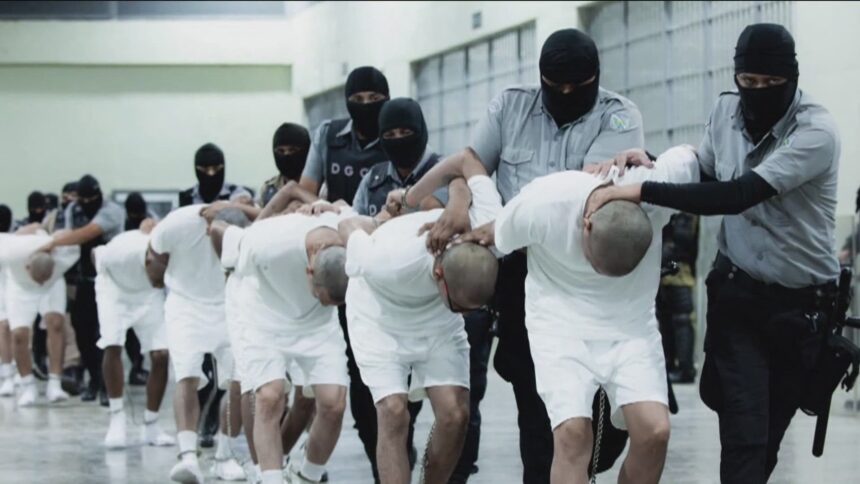Venezuelan Barber’s Journey to US Ends in Controversial Deportation
Andry Hernández, a 31-year-old barber from Venezuela, found himself at the center of a legal debacle after authorities alleged he was associated with a notorious gang, triggering a chain of events leading to his recent deportation to El Salvador. Hernández was awaiting an asylum decision in the United States when he was unexpectedly sent back to his homeland, a situation marred by concerns over the accuracy and fairness of the process used to link him to criminal activities.
Tattoos and Troubling Allegations
Hernández’s journey began in Capacho Nuevo, Venezuela, where he decided to commemorate his parents with tattoos on his wrists. During this process, he opted to add crowns, which symbolize the revered Three Kings Day celebrations in his hometown. Seven years later, those same crowns would play a pivotal role in linking him to the Tren de Aragua gang, according to US officials.
In March 2025, Hernández, who identifies as gay, was among a group of Venezuelans deported under a strict immigration policy that accused them of gang affiliations. Former President Donald Trump cited a need to combat transnational criminal organizations as the rationale behind the deportation.
Detention and Assessment Procedures
Hernández’s asylum application claimed he faced persecution in Venezuela for his political beliefs and sexual orientation. After seeking asylum at the San Ysidro Port of Entry in August 2024, he was taken into custody by US Immigration and Customs Enforcement (ICE). According to court documents, ICE’s assessment, carried out by a private contractor, flagged Hernández as a security risk primarily due to his tattoos.
| Assessment Criteria | Point Value | Description |
|---|---|---|
| Tattoo with crowns | 5 points | Identified as gang member indicator |
| Criminal/ Civil Convictions | 10 points or higher | Notable indicators of gang affiliation |
| Social Media Activity | 2-4 points | Displays symbols or gestures related to gang |
Hernández’s case became emblematic of a broader issue, with legal representatives questioning the objectivity of the criteria used to label individuals as gang members solely based on tattoos.
From Hope to Despair
Following a series of transfers between detention centers, Hernández was deported to El Salvador on March 15, 2025, alongside others labeled as suspected gang members. His family had hopes of attending a hearing for his asylum request, but authorities curtailed those prospects, leaving his fate uncertain.
In El Salvador, Hernández was sent to a notoriously severe prison, where conditions are widely critiqued. His family’s distress grew as they received no communication from him following his deportation.
Hernández’s story raised alarms among human rights advocates and prompted calls for clarity from US officials, including California’s Governor Gavin Newsom. As families and communities demand his release, experts argue that the linking of tattoos to gang affiliation may be an unreliable and unjust criterion.
The Fight for Justice Continues
Hernández’s plight exemplifies the precarious nature of immigration status for LGBTQ individuals and the complexities involved in gang identification criteria. As his family anxiously awaits news, the case remains a focal point of discussion regarding deportation policies and their implications for vulnerable populations.




